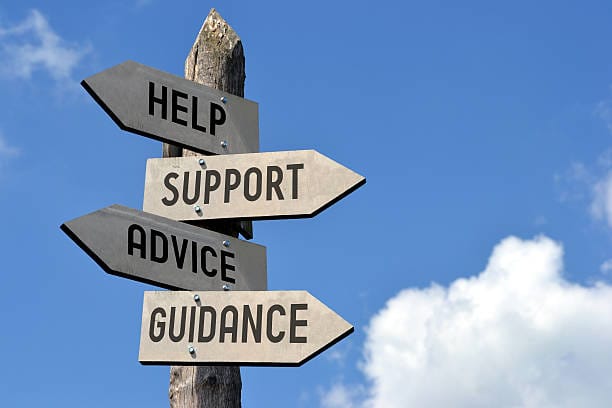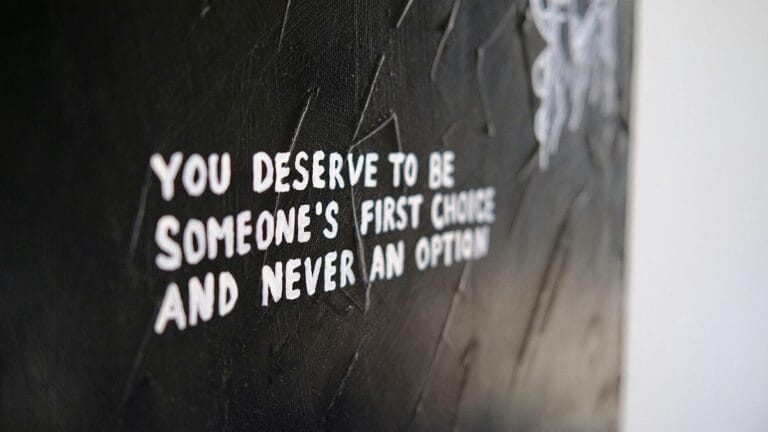Book Appointment Now
Unsolicited Advice: When Does It Go Too Far?

Advice: How many times have you given it today or yesterday? Probably an infinite number of times, right? From “don’t do this” to “do it that way,” to “you’re not making the right choice, it should be like this.” You’ve done this to your friends, your partner, or your colleagues. It mostly comes from a good intention of showing care and kindness to those you adore. But when does it cross the line and go too far?
A simple definition of advice is “offering suggestions about the best course of action to someone.” The key word there is offer, which simply implies that it’s not a forced suggestion but an offer, and the recipient can say yes or no.
But in the context of unhealthy relationships, you may get a million unsolicited pieces of advice from your partner for every simple thing. The difference between their advice and normal advice is that, to them, they advise from a commanding standpoint. They tell you to do something, and if you don’t follow it, they either get angry, ridicule you, or make fun of your choices if you fail.
Why do they get angry when you don’t follow their advice?
You see, for someone who has a huge and fragile ego, they want everything to go their way. It’s their way of maintaining a false sense of safety over a situation. So, when they’re giving you advice, it rarely comes from a place of care but rather from a place of dominance over you.
To them, they’re so full of themselves that they believe they give the best advice and know what’s best for you. Their advice is more like commands. So, when you turn down their advice, it’s like stepping on a fuse; they trip. They may call you stubborn, accuse you of not listening, or claim you’re being disrespectful simply because you’ve interrupted that power dynamic. The anger is a reaction to their fragile sense of self being bruised, a self overly reliant on control and constant validation.
And when you follow your own advice and it backfires, they won’t be there to offer words of comfort like, “It’s okay, that’s a lesson learned,” or to simply be there for you. Instead, they’ll say things like, “I told you so,” or “You should have listened to me,” all meant to make you feel bad, not for making the wrong choice, but for not listening to them.
There’s a huge difference between feeling bad for making wrong choices and feeling bad for not listening to someone who gave you advice. The former means you still have control over the situation, while the latter means you’ve relinquished control to the person who offered the advice.
The Impact of Unsolicited Advice
In life, we grow from our mistakes and our decisions. We learn from them and make better choices next time. But in an unhealthy relationship, the advice given doesn’t empower you, it disempowers you. It makes you overly reliant on the manipulator, because every time you do something small without consulting them or following their advice, you end up being scolded for “not listening” or ridiculed when your decisions lead to unwanted consequences. So, you’re damned if you do and damned if you don’t.
The longer you stay in such environments, the more you lose your power to make decisions and the more you lose your own voice. You may reach a point where your self-esteem has been so eroded that you doubt even the simplest choices: how much salt to put in your food, what clothes to wear, or what to say. These may seem simple, but when you’ve been forced to follow someone else’s advice for so long, small decisions start to feel daunting, not because they’re difficult, but because you were never given the space to express yourself.
In normal relationships, unsolicited advice can also go too far when you constantly offer it to your partner. Sometimes you just need to let them have their way, especially with small, non-fatal decisions like what to wear, adding salt to food, or what to eat at a restaurant. And when they fail or make a mistake, give them space to vent, but don’t add your ego with, “You should have listened.” It’s a relationship, not a game of control.
Actually, one of the hardest things to do is just listen without offering advice, sometimes even disguised as an “opinion.” We need to learn to restrain ourselves and let things be without interference.
It’s not easy, but that’s how you offer space for someone to feel that they can do it with or without you. You may think your intentions are good, but often it’s your ego nudging you, convincing you that your decisions are the best or that you know what’s best for everyone. You may think you know what’s best for your sibling, your mother, or your friends, yet you’ve never really asked yourself whether you truly know, or if you’re just insecure and trying to control everything around you.
Awareness is realizing that your advice is often a projection. It may not come from care as much as from what you want, not what they want. Next time you want to offer unsolicited advice, pause and ask, “Hey, do you want my advice on this?”
Most people will say “yes” out of habit, but when you get a “no,” feel that unpleasant reaction inside, that feeling of rejection. That’s growth too, realizing that not all your advice is welcome. Sometimes, it’s okay to simply observe and offer space, because that space is what helps people grow. Otherwise, your advice could be like giving a wheelchair to someone who can walk. It may seem helpful at first, but over time, it becomes crippling.
In Conclusion
In abusive relationships, you are forced to listen to advice, and if you don’t follow it, you face consequences. If you constantly follow it, you lose your autonomy and grow in self-doubt.
In normal relationships, you may still be offered advice, but with fewer consequences if you don’t follow it.
In conscious relationships, you are offered space to follow your own advice, space to think for yourself, and the empowerment to trust your own judgment.
Because we are all autonomous beings, capable of thinking for ourselves when the environment is supportive.







